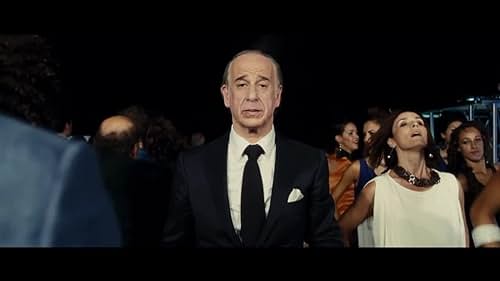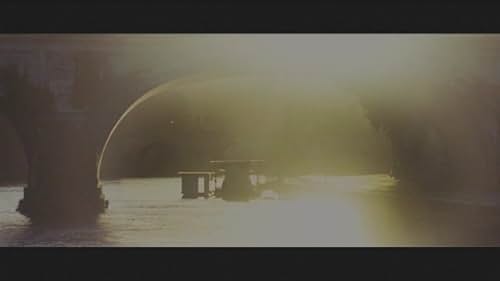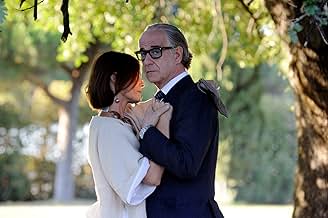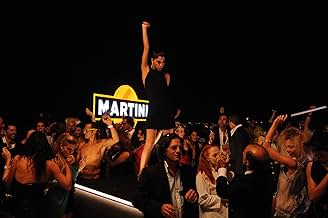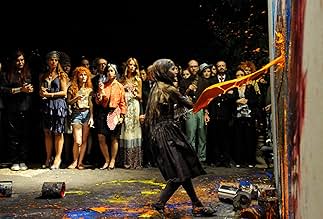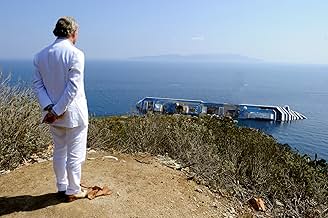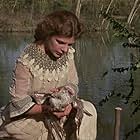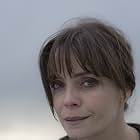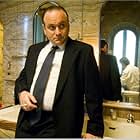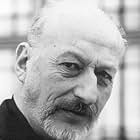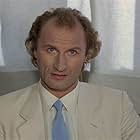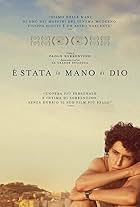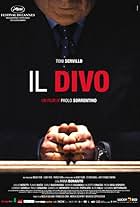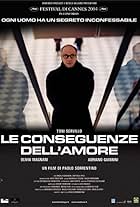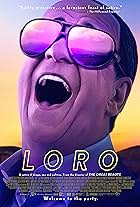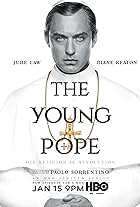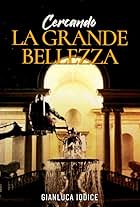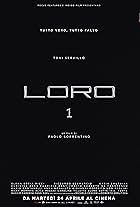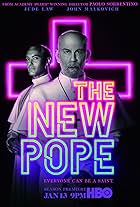Jep Gambardella has seduced his way through the lavish nightlife of Rome for decades, but after his 65th birthday and a shock from the past, Jep looks past the nightclubs and parties to find... Read allJep Gambardella has seduced his way through the lavish nightlife of Rome for decades, but after his 65th birthday and a shock from the past, Jep looks past the nightclubs and parties to find a timeless landscape of absurd, exquisite beauty.Jep Gambardella has seduced his way through the lavish nightlife of Rome for decades, but after his 65th birthday and a shock from the past, Jep looks past the nightclubs and parties to find a timeless landscape of absurd, exquisite beauty.
- Won 1 Oscar
- 60 wins & 77 nominations total
- Lillo De Gregorio
- (as Lillo Petrolo)
Storyline
Did you know
- TriviaOne of Sorrentino's inspirations for this movie was Flaubert's famous statement that he intended to write a novel about nothing. Sorrentino stated, "By 'nothing' he meant the rumors and gossip, the thousand ways we have of wasting time, the things that irritate us or delight us but that are so short-lived that they make us doubt the meaning of life. That 'nothing' makes up many people's entire lives." He also said that he wanted to depict "the great thing about life, the fact that you can be surprised by something that you'd decided was vulgar and wretched, and then suddenly what is vulgar and wretched reveals its own entirely unexpected grace."
- Quotes
[last lines]
Jep Gambardella: This is how it always ends. With death. But first there was life. Hidden beneath the blah, blah, blah. It's all settled beneath the chitter chatter and the noise. Silence and sentiment. Emotion and fear. The haggard, inconstant flashes of beauty. And then the wretched squalor and miserable humanity. All buried under the cover of the embarrassment of being in the world, blah, blah, blah... Beyond there is what lies beyond. I don't deal with what lies beyond. Therefore... let this novel begin. After all... it's just a trick. Yes, it's just a trick.
- Alternate versionsA 174-minute extended version was screened at the Rome Film Festival in October 2015 and then released theatrically in Italy in June 2016. Here are some of the additional scenes:
- Japanese Sequence: extra shots of the tourists and the guide. There are several alternate shots of the choir and the leading lady, as "I Lie" is sung in its entirety. After the Japanese man collapses the guide goes to assist him as the bus driver approaches the body very slowly.
- Party Sequence: there are a lot of different shots of several guests. An extended sequence of the woman dancing under the water-spraying fan; she's seen dancing erratically from one fan to the other. Added shot of an old man asking to a woman what are the names of the puppies she's holding in her arms. Jep is introduced much later than in the original cut and "Far L'Amore" is almost heard in its entirety. The scene has a more frantic pace. The slow motion sequence with Jep entering into frame is longer, even though his monologue remains the same. The sequence where Dadina wakes up is longer as she goes around searching for her friends.
- Afterparty: the scene with Romano and the Pale Girl in the car is edited differently. After Jep walks past the laughing children, there's a shot of a Filipino woman standing still with a dog by her side and a blank expression on her face. The guy pulling the dog with his leash is shown again, walking away. Added shot of a couple of secret lovers, a priest and a civilian girl, leaving a bench in a hurry after getting scared by the sound of a bell in the distance. New shot of Jep getting undressed.
- The dialogue between Jep and the artist is longer.
- Jep's first meeting with Dadina is edited differently and shown through alternate angles.
- There's a sex scene between Jep and the rich woman from Milan. She seems to enjoy it, while Jep seems more interested in a painting on the ceiling.
- When Jep is walking by the river and a boat comes by, before the banner can be read clearly, there's a close-up of the man on the ferry looking at him intensely.
- A new scene where Jep is seen randomly following a hobo through a park, while trying to listen to his crazy mutterings. His interest is caught by a fat man in a speedo, who's taking pictures of a young girl on a rock nearby, and he loses the hobo.
- Extended dialogue between the ex-girlfriend's husband and Jep.
- Entirely new scene where Jep interviews a retired director. They talk about movies, life, and the importance of love, and the director tells Jep his new movie is going to be about a silent girl whose eyes change color every time she closes them. Jep asks if the girl is based on one of the director's past girlfriends, but the director reveals that she's based on the fondest memory of his childhood: the construction of the first street light in Milan (hence the changing colors), before saying, "What a beauty... What a Great Beauty!" The Director also mentions his past relationship with Dadina, Jep's boss, whom he describes as a woman of high charisma and intelligence. The scene ends with the man asking Jep for a cigarette before cutting to a new shot of Dadina on a wheeled stair getting pushed through a series of rooms by an assistant, while she laughs with joy.
- Before Jep's moral takedown of his friend there are a few extra shots of his friends on the balcony.
- Ramona's dialogue with Jep at her house is slightly different.
- New scene with Jep, Ramona, and his father visiting the girl's mother, who lives in a farm on the outskirts of Rome. The woman looks nothing like her daughter and is seen harvesting vegetables from her field. The mother then sits on a chair and lights a cigarette before whispering, "See? That's how rhythm should be." Meanwhile, Jep casually looks at the inside of her kitchen from a window.
- A new sequence with the host smashing a platter against a house servant because of a mistake in the catering. Added shots of Ramona and Jep arriving at the house and the art pieces collected inside. An old waiter carrying pastries is tripped by a metal wire set by the angry painting girl and her friends. After the girl is dragged away, the waiter seems to have some sort of seizure. The Angry Painting sequence is edited differently and runs longer. There are several more shots of the guests dancing during the party.
- The night trip to the museum is much longer. Many extra shots of paintings and sculptures. There's a new sequence with Ramona getting lost after receiving a mysterious phone call by someone. She seems to be afraid of the art pieces and almost runs away before meeting the key master in a hallway. She then says, "You look like an old child."
- The funeral monologue by Jep is edited differently and runs slower. The following ceremony has extra shots of the boy's mother grieving for her loss and of Jep's friend sitting in the crowd.
- New scene with Jep and Ramona walking on an empty street at night. A black limo stops by and the car door opens. Ramona seems terrified by it, as a man's eyes can be seen staring at her from the window.
- Ramona's death scene is shown through a different angle. There's an explicit shot of her breasts when she turns in the bed. A new sequence shows Jep running to his balcony, looking agitated. He sees his neighbor staring at him from the balcony with seven apples in front of him and wearing a black hood. The two exchange glares for a moment before the man throws Jep one of the apples and retreats inside his house.
- After the bar sequence there's a shot of Jep walking alone in a field, looking sad and disoriented.
- When Jep goes to visit the one-photo-a-day exposition there's an extra exterior shot of the church where the photos are shown.
- A new shot of Viola, the dead boy's mother, inside a church with her head completely shaved and lying on a broom, with Jep spying on her in the background.
- The wedding sequence is very different from the original cut. The extended version begins with a hot-air balloon descending from the sky, carrying a grotesque fat woman (named as The Mother of the Bride in the original screenplay). The woman walks past Jep and Lello, using a cane before stopping to ask someone, "Where are the meatballs?" in a very thick Roman accent. Later, Lello plays a trick on Jep and his wife, who are eating mozzarellas. He runs to them, saying, "Don't eat them! They're blue!" before exploding in laughter. There are extra shots of the Cardinal speaking to the guests. A new scene takes place in the nearby woods, with the Cardinal leading a search group for skunks, as the Fat Woman is seen again getting fed with meatballs by a waiter. The Cardinal eventually loses his group and turns around to scream, "Where have you all gone?" Someone answers with a raspberry. The Cardinal almost loses his cool before noticing the sudden appearance of an elegant woman, who starts singing a song about love while smiling at him. The sequence ends with a shorter version of the scene with Jep reuniting with the friend he morally destroyed at the beginning of the film, as several extra shots of the guests dancing are shown.
- A new scene with Romano and the Pale Girl leaving the theatre in his car, after his recital. The girl comments that Romano's writing sucks and the man abruptly stops the car to push her out of the vehicle and leave. He returns moments later to find her sitting on a stairway as she tells him to "touch" her. Romano begins groping the girl's breasts but she takes his hand and puts it between her legs. There's an implied sexual stimulation but the girl is obviously faking her moans of pleasure, before saying, "Look at the sky... The seagulls are flying away..." The scene ends with the girl asking Romano, "So, are we going now?" as he looks at her with a face full of disgust and resentment. Later, Jep mentions that Romano has cut all contacts with anyone in Rome and has literally disappeared during an extended dialogue with Dadina.
- New sequence with Jep walking along the water ducts of Rome and finding a working street light in the middle of nowhere, a sight that gives him a strange sense of joy.
- Extended threesome attempt sequence: after Jep meets the couple at his latest party, they are seen heading to the upper floor of his house. The husband suddenly asks, "Is she the mommy?" Jep doesn't understand the question, and the man says again, "Is she the mommy?" We later see they're about to have a threesome on a bed with a portrait of Jep's mother hanging above it. Jep sits on a chair as the couple undress. The husband begins flashing his wife's private parts using his smartphone. Every time he flashes a new part he says, "There you have it." The scene ends with Jep almost falling asleep on the chair and muttering something like "Sure, have it."
- The surgeon sequence is shown much later in the movie, just before the Santa sequence. It begins with an extra introduction of Jep and the doctor descending a stairway inside Dr. Bracco's private office as the surgeon mistakenly calls him "Pappardella" (a type of pasta) instead of "Gambardella." They are greeted by a smiling nurse carrying a mirror. The injection scene is almost the same as the original cut, with a few extra shots of breasts getting injected. The nun who asks for Botox injections in her palms to reduce her sweating is entirely absent and is replaced by a young woman, who says, "My boyfriend didn't want me to come here. He says I don't need retouching." The doctor replies, "Everybody needs a little retouching. That damn love must have blinded your guy."
- The sequence with the Saint greeting her followers is edited differently.
- Jep's visit to the Concordia's wreckage is shown much earlier in this cut.
- New sequence with Dadina jumping to reach a bottle of beer on the upper shelf of a refrigerator. She's helped by Jep's maid. We later see her talking with Jep on the balcony about the upcoming dinner with the Saint as she receives a phone call. She answers, before blurting out something incredibly vulgar out of rage, regarding the Saint's request of the noble couple who helped her during her first trip to Italy.
- The rent-a-noble couple introduction is shown from different angles and it's implied that Dadina has already called them on past occasions.
- There is an extended sequence showing the guests leaving Jep's house before being stopped by the Saint's assistant screaming for help over her disappearance.
- An extended sequence of the noblewoman paying a visit to her childhood home. As she enters the building, the Guard says, "Madame, you gotta stop doing this, you'll make me lose my job. This is no longer your house. It's a museum." The woman replies, "This is still my home," and bribes him to let her in.
- Extra shots of the Saint sleeping in Jep's room.
- The CG flamingos are shown from different angles.
- There are a few extra shots of Rome's inhabitants, like a man emerging from the Trevi Fountain with a fistful of pennies.
- The final montage with Jep's return to his hometown, his memory of Elisa, and the Saint climbing the holy stairs has a different pacing than the original cut.
- ConnectionsEdited into Frames of Life: Giorgio Armani - Films of City Frames (2014)
Somebody could be annoyed by the fact that nobody in the movie seems never to do any kind of work at all -- curiously enough, the only self-proclaimed hardworking man happens to be a very seriously-looking international criminal! But for most of the other characters, money looks more like a cause, than a consequence of life. Without the restraints of needs, left with no practical excuses for not being happy, they still accomplish somehow the no small feat of spoiling their lives with various forms of suffering and pain.
The story is wonderfully told both by images and dialogues. It takes some kind of "magic realism" turn towards the end – but that's balanced by the steadily cynic tone of the stream of consciousness coming out from Jep, wandering around the city like Marlowe in Los Angeles. Paolo Sorrentino is a writer, too: he has written a couple of enjoyable books starring a character very similar to the one depicted in the movie, a cold bastard bon vivant with a surprisingly soft heart. Mr. Toni Servillo provides flesh, and bone, and looks, and wit for this character. Just another major performance from the greatest Italian living actor: at the end of the movie it leaves into the audience the clear idea to have actually known a real person, not just a fictional one. The whole supporting cast is great, and very well-picked. A special mention goes to Sabrina Ferilli and Carlo Verdone, two very famous actors in Italy, shining here in two supporting roles where both of them display their undisputed talent.
Details
- Release date
- Countries of origin
- Official sites
- Languages
- Also known as
- La gran belleza
- Filming locations
- Fontana dell'Acqua Paola, Janiculum Hill, Rome, Lazio, Italy(opening sequence)
- Production companies
- See more company credits at IMDbPro
Box office
- Budget
- €9,200,000 (estimated)
- Gross US & Canada
- $2,852,400
- Opening weekend US & Canada
- $23,442
- Nov 17, 2013
- Gross worldwide
- $25,368,330
- Runtime2 hours 21 minutes
- Color
- Sound mix
- Aspect ratio
- 2.35 : 1
Contribute to this page


